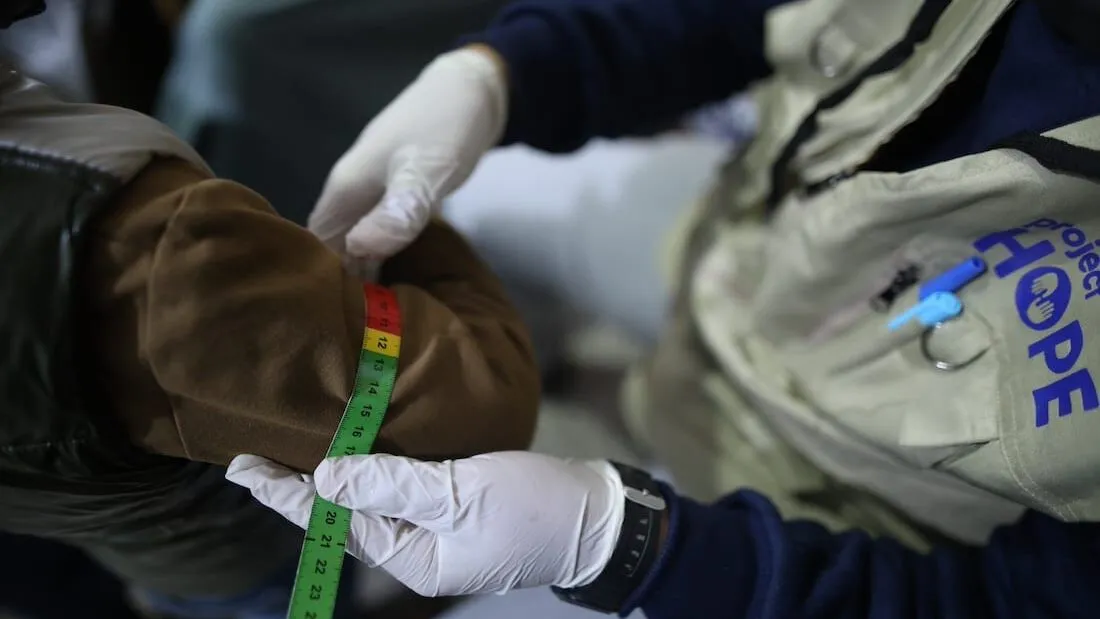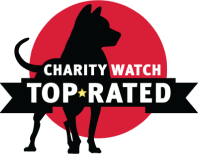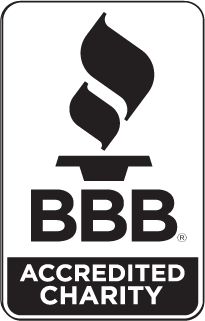Gaza on Brink of Catastrophic Hunger Crisis

Millions in Gaza are on the brink of famine-like conditions as the threat of a ground invasion in Rafah nears and people are once again displaced or stranded with limited to no resources. Over the last three weeks, 21% of pregnant women at Project HOPE’s primary health clinic in Deir al Balah were malnourished. People have reported eating nothing but white bread as fruit, vegetables, and other nutrient-dense foods are nearly impossible to find or too expensive
Malnutrition is especially dangerous for women who are pregnant as it leads to poor health outcomes for the mother and newborn. In addition to an increase in malnutrition, Project HOPE’s team in Deir al Balah has reported a rise in anemia cases among pregnant women, caused by the lack of protein, iron, and other micronutrients, which can increase the risk of a life-threatening postpartum hemorrhage, premature births, and low birth weight.
Hunger rates will only increase in the coming weeks if violence continues, aid shipments remain both delayed and inadequate, and critical services run by the World Food Program and UNRWA are paused or disrupted due to insecurity or lack of funding. To prevent hunger from skyrocketing across Gaza, Project HOPE reiterates its call for an immediate and permanent ceasefire for people in Gaza to have access to robust lifesaving services and proper nutrition. Anything short of an urgent and lasting ceasefire will exacerbate the inhumane conditions for more than two million people in Gaza.
Dr. Maram, Project HOPE’s Lead Physician in Deir al Balah, said:
“Every day, we see women and children coming into our clinic suffering from acute malnutrition. The shelves at the market are empty. The only available food is canned but there is no cooking gas available to make a proper dish. For any food you can find, the prices are high, and most people can’t afford to buy anything. I only see this getting worse as Deir al Balah continues to be overcrowded with people fleeing Khan Yunis and Rafah. As infectious diseases spread in crammed areas and food becomes even scarcer, we will see more and more people going hungry – including the health workers who are trying to help. I worry every day that I won’t find anything to eat.”
Rabih Torbay, CEO and President of Project HOPE, said:
“What’s happening in Gaza is inhumane. People are starving and stranded. Hunger is cruel and slow, impacting the most vulnerable among a population – pregnant women, the elderly, and children. If a ground invasion occurs in Rafah, where over one million people are already confined to tents and makeshift shelters, the conditions are likely to transition from a struggle for survival to becoming utterly unsustainable for human life. If people do not die from violence, they will die from hunger or disease. This situation demands urgent and bold action. Without a ceasefire and robust humanitarian access and aid, we will see more and more people facing starvation soon.”
Project HOPE is actively supporting Palestinian and Israeli communities affected by the conflict. Our team in Gaza has treated over 6,000 patients in Deir al Balah and has provided primary health care to over 3,000 people at three sites in Rafah. We also have emergency and trauma medical staff providing care at Al Aqsa Hospital in Deir Al Balah through our partner JHASi. Project HOPE has provided mental health support through local partners and has distributed family hygiene kits, mattresses, and blankets to our partner ANERA. We have prepositioned additional medical supplies that are still awaiting entry into Gaza.
Notes to the Editor:
- From February 5 – 24, Project HOPE’s team in Deir al Balah reported an average of 21% of 416 pregnant women who visited the clinic showed signs of malnutrition.
For Media Inquiries: media@projecthope.org







